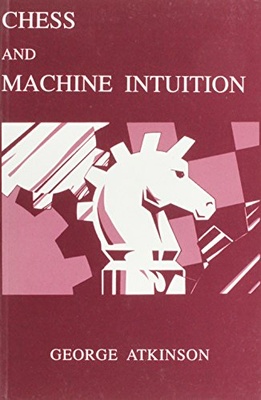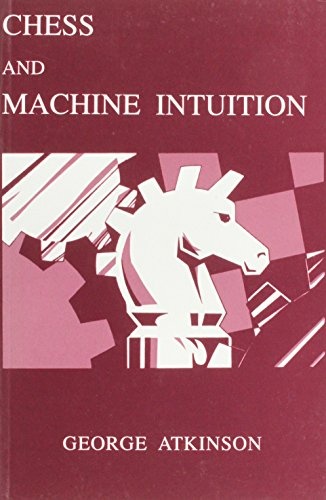Chess and Machine Intuition (Book)
With the ability to conceive of and construct ever more complicated machinery, expectations have increased that we may yet comprehend, and perhaps even duplicate, some of our own mental abilities. In examining how we think, act, and enjoy the complexities of problem solving in such activities as chess play, we obtain an increased appreciation of our own minds and potentials.
Through an overview of machine chess, a history of the game, and a discussion on human intuition, machine intuition, and current concepts and their creators, the author intends to increase the readers' appreciation of their own minds, as well as of computers, in order to further understand the mysteries of human thought.
Edition
Preface vii
1 Did Someone Say Ten Years? 1
An overview of the most conspicuous branch of artificial intelligence, machine chess, in which a breakthrough is always expected within a decade; a synopsis of the book.
2 The Rise of Mechanical Automata 15
Von Kempelen's 1769 "Turk" takes on all comers at chess; Charles Babbage designs an Analytic Engine; Torres y Quevedo builds an electro-mechanical endgame machine.
3 B.P. 23
A group of chess players and mathematicians at a secret British wartime facility build machines to crack ciphers and, for recreation, design chess machines.
4 Minimax 37
Assigning values to chess positions allows comparison of alternative branches of a move tree; Claude Shannon describes Alan Turing tests, and first programs run.
5 Brute Force 53
Amateur's chess knowledge proves codifiable, the chess master's does not; knowledge-based machines yield to brute-force computation; computer tournaments become a spectator sport.
6 Human Intuition 73
Humans are poor calculators, but exploit brain's pattern recognition to play terrific chess; psychologists show expertise is result of trained intuition.
7 Human Versus Machine 85
John Henry beats the steam drill, David Levy conquers CHESS 4.7, and Garry Kasparov outplays Deep Thought; calculating amateurs lose while intuitive masters win.
8 Custom-Built Hardware 103
Chess machines on a chip and custom-built circuitry amplify brute-force capability.
9 Computable Subgame 119
Human theoretical knowledge of chess increases through machine-assisted computation; exact endgame computations provide unexpected results.
10 Machine Learning 131
It ain't smart if it always makes the same mistakes; some machines learn from esxperience; others induce rules from examples, and can acquire intuitive knowledge.
11 Machine Intuition 149
Computing devices coupled to an environment mimic neural systems for intuitive information processing and offer hope for knowledge-based chess machinery.
Appendix A: Chess Notation 157
Appendix B: Torres y Quevedo's Mating Algorithm 159
Appendix C: Recursive Programming and the Minimax Algorithm 161
References 163
Author Index 169
Subject Index 171




